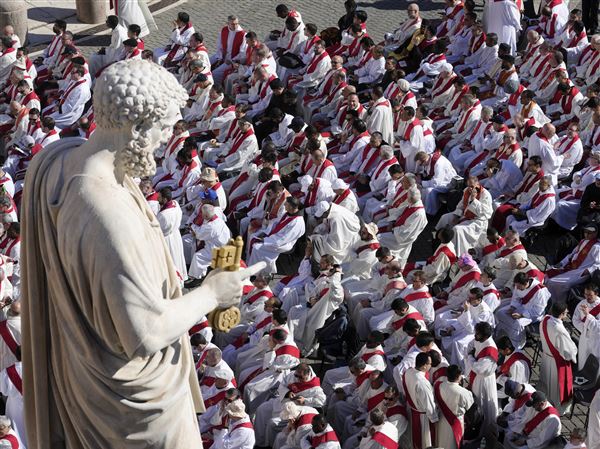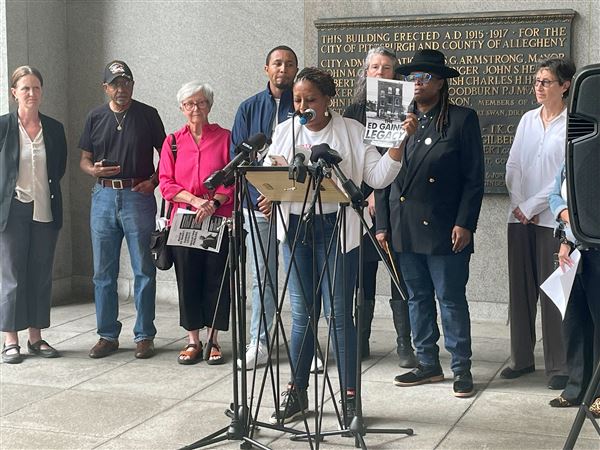A dispute between the former owners of a Bridgeville-based government contractor that did business in dangerous places has put Michael Baker International in a hot spot.
The Moon engineering firm is liable for a $15.8 million federal court judgment against Sallyport Global Holdings, according to Brian Glasser, a Charleston, W.Va., attorney who represents Thomas Charron. Mr. Charron, who lives in Massachusetts, is a West Point graduate who founded Sallyport in 2003 with a $100,000 home equity loan.
Baker’s connection to Sallyport came after a prosperous partnership between Mr. Charron and another West Pointer, Chartiers High School graduate John P. DeBlasio, turned sour. Mr. DeBlasio logged 21 years of active and reserve service in the U.S. Army, including serving as an adviser to the Coalition Provisional Authority, Iraq’s transitional government, during a 14-month tour in 2003-04.
According to court records, Mr. Charron met Mr. DeBlasio in Iraq in 2004. A few months later, Mr. Charron gave Mr. DeBlasio a 50 percent interest in Sallyport, whose work included security, shuttling Iraqi police trainees between Iraq and Jordan, and building secure compounds for the U.S. Agency for International Development. The DeBlasio family’s Bridgeville accounting firm kept Sallyport’s books, the only operation the company had in the suburban Pittsburgh community.
Most of Sallyport’s work was done in hazardous, far away places. Court records indicate the company won no-bid contracts tied to Operation Iraqi Freedom or Operation Enduring Freedom in Afghanistan. The company collected tens of millions of dollars in revenue annually for taking the kind of risks that included a 2006 incident in which 19 Sallyport employees were pulled off a bus in Iraq and executed, according to court records and other sources.
“It was one of those businesses where people had to really swallow hard to get the hairball down,” Mr. DeBlasio told the court.
As U.S. involvement in those war-torn countries wound down, tensions between Mr. Charron and Mr. DeBlasio heated up. Some of the tension was generated by the fact that Mr. DeBlasio’s brothers controlled Sallyport’s books, making Mr. Charron feel like he had lost control of his company, court documents state.
Mr. Charron sold his half of Sallyport in 2010 to Mr. DeBlasio for $40.7 million, court records indicate. Six months later, Mr. DeBlasio sold the company to DC Capital Partners, an Alexandria, Va., private equity firm.
That’s where Baker, which also did work in Iraq and Afghanistan, entered the picture. DC Capital acquired Baker last year and made Sallyport a subsidiary of the Moon engineering company.
The $15.8 million judgment that Baker faces stems from a lawsuit Mr. Charron filed against Mr. DeBlasio and Sallyport after their split. A windfall profit provision in his agreement to sell Sallyport to Mr. DeBlasio entitled Mr. Charron to an additional payment if Mr. DeBlasio sold Sallyport for more than $65 million within a year of buying out his partner.
Mr. Charron sued after finding out that DC Capital paid more than $65 million for Sallyport, not the $64.5 million price Mr. DeBlasio disclosed.
Mr. Charron’s lawsuit, filed in federal court in Manhattan two years ago, sought a ruling on what DC Capital paid for Sallyport. Mr. Charron also sought an interpretation of whether the windfall profit provision meant he was entitled to 20 percent of whatever DC Capital paid for Sallyport or only 20 percent of the sales price over $65 million.
On. Dec. 10, U.S. District Judge William H. Pauley III ruled that DC Capital paid $79 million for Sallyport and that Mr. Charron was entitled to 20 percent of that, or $15.8 million. His ruling made Sallyport, Mr. DeBlasio, and a charitable trust Mr. DeBlasio established with the money he received for selling Sallyport liable for the judgment.
Baker declined comment on the judge’s decision.
Judge Pauley, who called the lawsuit “a sad denouement to what began as a vibrant and symbiotic partnership between two West Point graduates,” also ruled that Mr. Charron must repay approximately $227,000 to Sallyport for checks he wrote to himself in his waning days as an owner of the company.
Mr. Charron told the court the checks covered salary he was owed, reimbursable expenses, and settling an account he and Mr. DeBlasio had set up to keep track of cash they took out of Sallyport for their personal use.
In a phone interview, Mr. DeBlasio said he was disappointed by the ruling, given the judge’s finding that Mr. Charron provided questionable testimony.
“The judge recognized it and he still left him off the hook,” Mr. DeBlasio said. “I think there are good grounds for appeal.”
Len Boselovic: 412-263-1941 or lboselovic@post-gazette.com
First Published: December 21, 2014, 5:00 a.m.

















